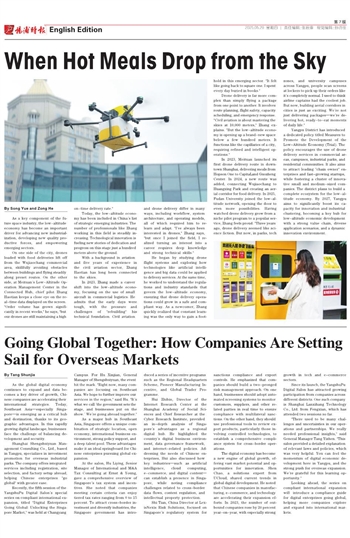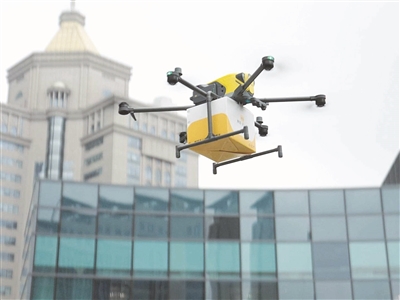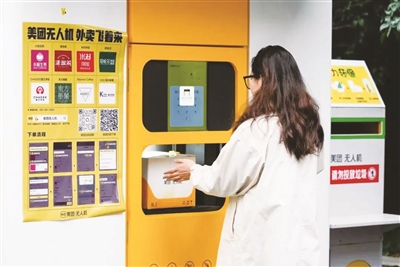By Song Yue and Zong He
As a key component of the future space industry, the low-altitude economy has become an important driver for advancing new industrialization, developing new quality productive forces, and empowering emerging sectors.
On one side of the city, drones loaded with food deliveries lift off from the Wujiaochang commercial area, skillfully avoiding obstacles between buildings and flying steadily along preset routes. On the other side, at Meituan's Low-Altitude Operation Management Center in the Connected Hub, chief pilot Zhang Haotian keeps a close eye on the real-time data displayed on the screen. "Order volume has grown significantly in recent weeks," he says, "but our drones are still maintaining a high on-time delivery rate."
Today, the low-altitude economy has been included in China's list of strategic emerging industries. The number of professionals like Zhang working in this field is steadily increasing. Technological innovation is fueling new stories of dedication and progress on this stage just a hundred meters above the ground.
With a background in aviation and five years of experience in the civil aviation sector, Zhang Haotian has long been connected to the skies.
In 2023, Zhang made a career shift into the low-altitude economy, focusing on the use of small aircraft in commercial logistics. He admits that the early days were tough, with the pressure and challenges of "rebuilding" his technical foundation. Civil aviation and drone delivery differ in many ways, including workflow, system architecture, and operating models, all of which required him to relearn and adapt. "I've always been interested in drones," Zhang says, "but once I joined the field, I realized turning an interest into a career requires deep knowledge and strong technical skills."
He began by studying drone flight systems and exploring how technologies like artificial intelligence and big data could be applied to delivery services. At the same time, he worked to understand the regulations and industry standards that govern the low-altitude economy, ensuring that drone delivery operations could grow in a safe and compliant way. As a newcomer, Zhang quickly realized that constant learning was the only way to gain a foothold in this emerging sector. "It felt like going back to square one. I spent every day buried in books."
Drone delivery is far more complex than simply flying a package from one point to another. It involves route planning, flight safety, capacity scheduling, and emergency response. "Civil aviation is about mastering the skies at 10,000 meters," Zhang explains. "But the low-altitude economy is opening up a brand-new space below a few hundred meters. It functions like the capillaries of a city, requiring refined and intelligent operations."
In 2023, Meituan launched its first drone delivery route in downtown Shanghai, delivering meals from Hopson One to CapitaLand Guozheng Center. In 2024, a new route was added, connecting Wujiaochang to Huangxing Park and creating an aerial corridor for food delivery. In 2025, Fudan University joined the low-altitude network, opening the door to even more possibilities. Having watched drone delivery grow from a niche pilot program to a popular service, Zhang feels proud. "Three years ago, drone delivery seemed like science fiction. But now, in parks, tech zones, and university campuses across Yangpu, people scan screens at lockers to pick up their orders like it's completely normal. I used to think airline captains had the coolest job. But now, building aerial corridors in cities is just as exciting. We're not just delivering packages—we're delivering hot, ready-to-eat moments of daily life."
Yangpu District has introduced a dedicated policy titled Measures to Promote the Development of the Low-Altitude Economy (Trial). The policy encourages the use of drone delivery services in commercial areas, campuses, industrial parks, and residential communities. It also aims to attract leading "chain owner" enterprises and fast-growing startups, while fostering a cluster of innovative small and medium-sized companies. The district plans to build a complete ecosystem for the low-altitude economy. By 2027, Yangpu aims to significantly boost its capacity for innovation and industrial clustering, becoming a key hub for low-altitude economic development with a strong value chain, diverse application scenarios, and a dynamic innovation environment.



